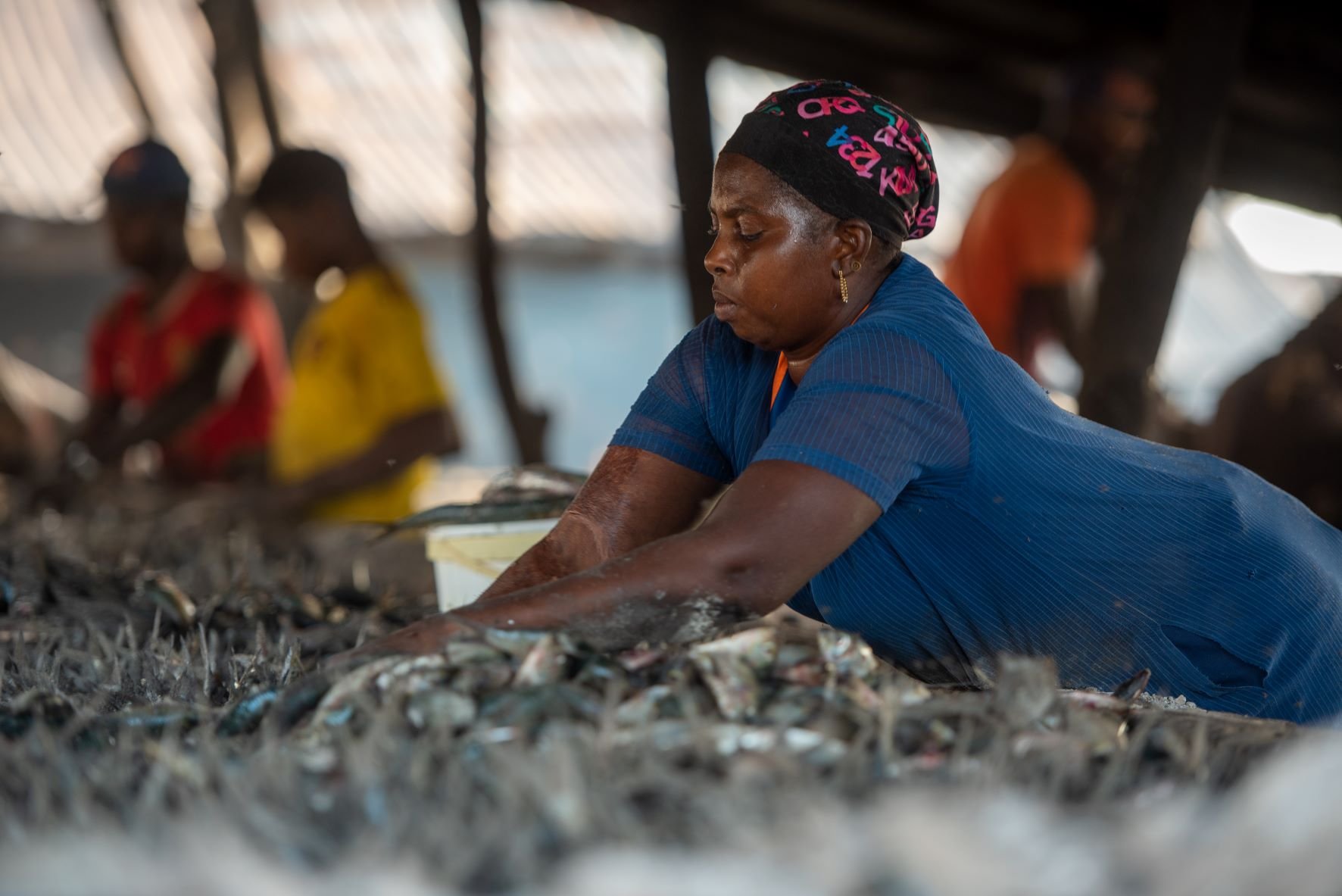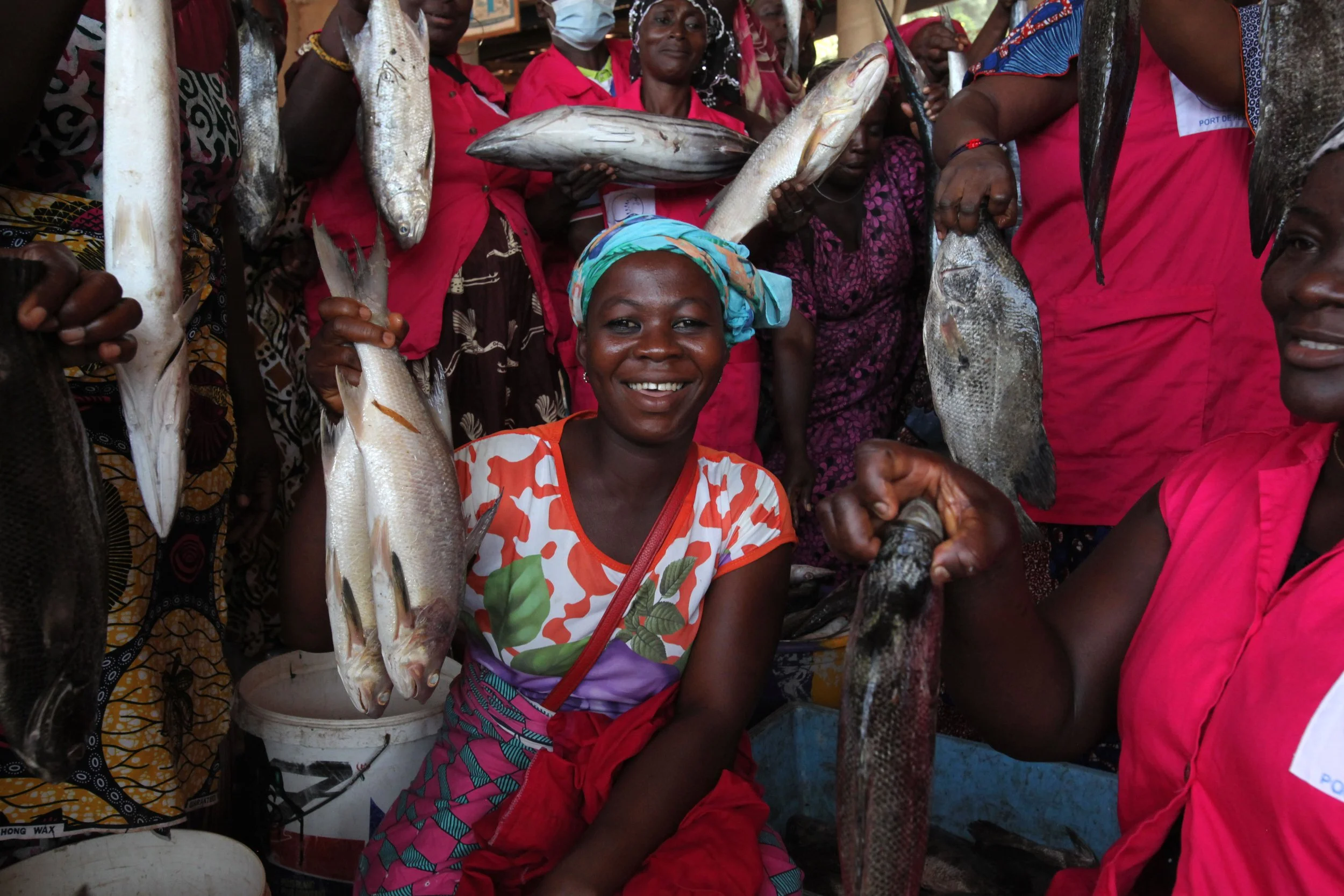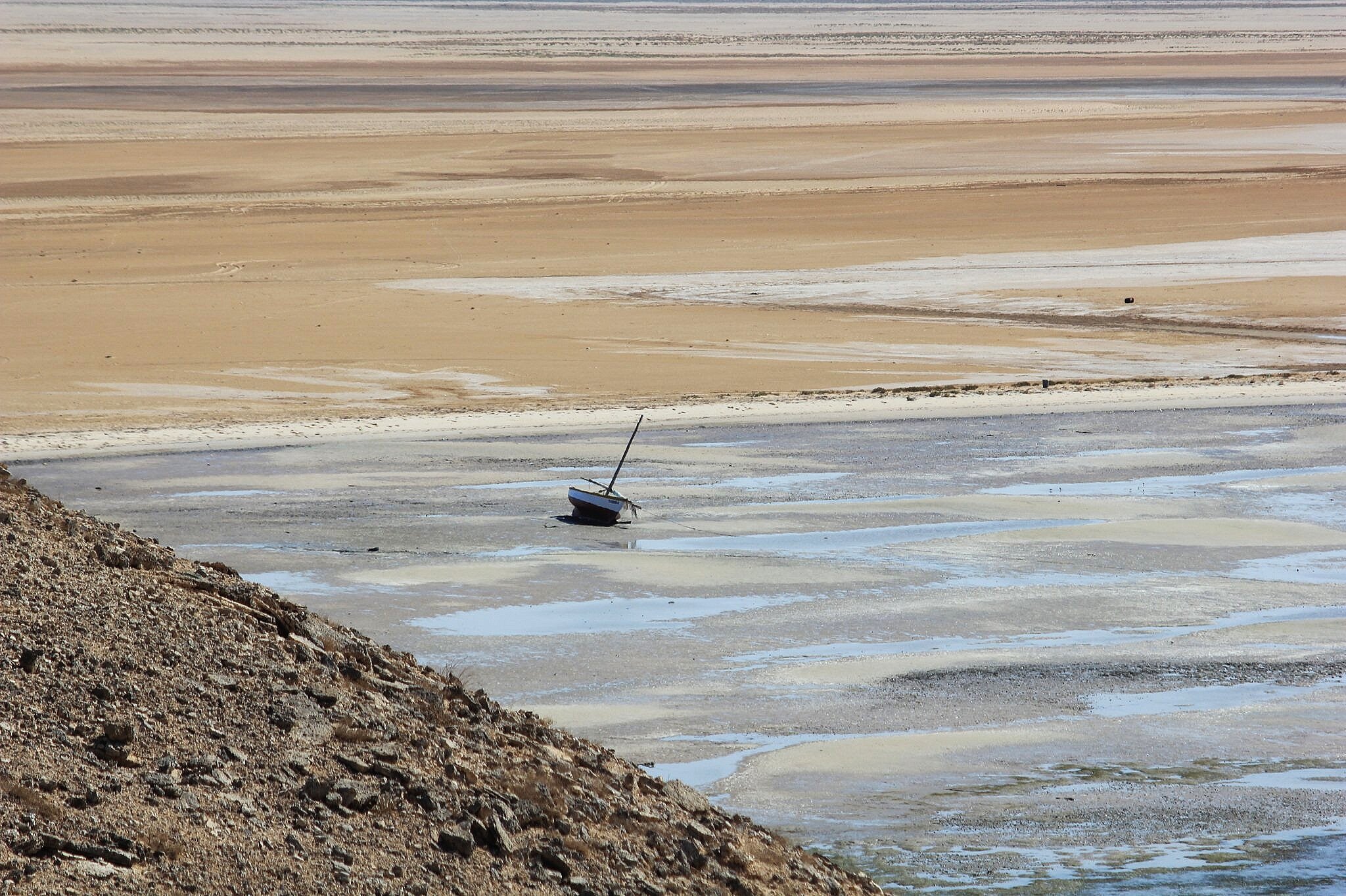The strategy of transforming seafood industry through voluntary partnerships and market-based incentives is the approach currently favoured by many environmental NGOs and donors. The case of Mauritania reduction fisheries “Fisheries Improvement Project” highlights the fundamental flaws with the corporate friendly approach and the urgent need to resist this model becoming normalised.
West Africa: PESCAO should be more effective and attentive to artisanal fisheries
The PESCAO programme for the improvement of fisheries governance in West Africa, financed by the EU from the 11th EDF Regional funds, started in June 2017 and will end in June 2024. After nearly 4 years, an evaluation is underway to assess the results obtained and to see how to improve its implementation, in a context where the countries of the ECOWAS region are focusing on the development of a blue economy strategy.
Making fish worth its weight in gold: granting better access to markets for women in African artisanal fisheries
The Sustainable Blue Economy Finance Initiative: How to destroy the oceans responsibly
Efforts to make blue economy sustainable have led to increasing calls for better regulations on investments. The European Commission has provided funding for the United Nations Environment Programme (UNEP) to launch the Blue Economy Finance Initiative (BEFI). The BEFI has been celebrated in international conferences about blue economy, however, this article highlights the inherent weaknesses of voluntary guidelines in mitigating the threats financial investors pose to the destruction of the planet.
Debt-for-nature swaps and the oceans: The Belize Blue Bond
This second article of our series on financialisation and the blue economy covers TNC’s recent debt-for-ocean swap in Belize, news about TNC’s “audacious plan” of other debt swaps in other countries, the history of debt swaps and how the recent swaps reflect the financialisaton of conservation and finally, why these debt swaps are worrying for small-scale fisheries.
EU-Mauritania SFPA: The requests of the Mauritanian artisanal fisheries and civil society
This week the European Parliament is discussing a first draft by rapporteur Izaskun Bilbao on the Sustainable Fisheries Partnership Agreement between the European Union and Mauritania. This agreement is of great interest to the EU fisheries sector and is the most expensive of all fisheries agreements between the EU and third countries.
How will the EU contribute to support sustainable artisanal fisheries in Africa through its International Partnerships
The new EU regional programming for Africa gives fisheries and oceans greater importance. It also focuses more on small-scale fisheries stakeholders and civil society organisations, which is an opportunity for them to make their voice heard. This article covers a summary of the 2014-2020 and the ongoing 2021-2027 programming, calls for more policy coherence and recommends increased participation of stakeholders for greater and efficient use of the EU funding.
Joint statement - European and African decision-makers should join forces to support sustainable artisanal fisheries in Africa
In view of the summit that will bring together the leaders of the European Union and the African Union in Brussels on 17th and 18th February 2022 and in the context of the International Year of Artisanal Fisheries and Aquaculture (IYAFA), six civil society and professional organisations call the EU and AU to take concrete action in three key areas. Click on the link to read more.
The new EU-Mauritania agreement: towards a sustainable management of small pelagics in West Africa?
In this third article in the series on fisheries in Mauritania, the authors review the state of overexploitation of small pelagic stocks, look at the ways the EU SFPA seeks to address the issue and come back to the demand of several stakeholders for a regional fisheries management organisation for shared small pelagic stocks.
Happy International Year of Artisanal Fisheries!
Understanding the conservation finance industry
More aquaculture to feed the world? Not at the expense of African fishing communities
Nowadays, aquaculture provides more people with food than capture fisheries, and the tendency is growing. The accompanying demand for fishmeal and fishoil, driven mainly by China, is increasingly being covered by West African fishing. However, putting the blame for the threat to fish stocks in the region solely on China’s appetite for seafood falls a little short.
Living on the frontline: climate change will first impact African coastal fishing communities
Experimental fishing or experimental pillaging in Liberia?
Transparency: Mauritania improves its score, but is still far from the goal
Mauritania: A 40-metre seiner authorised to fish on the borders of the Banc d'Arguin
WTO fisheries subsidies negotiations: Will the mountain give birth to a mouse or to a lion?
Small-scale fisheries’ participation in decision-making is crucial for food security of African coastal communities
African and European artisanal fishers, together with their international partners, issue a joint declaration before the UN Food Systems Pre-summit underscoring their concerns about the overall process, the lack of consultation of small-scale fisheries stakeholders, and the promotion of large-scale industrial aquaculture by some of the UNFSS organisers.
"The rich man's fish feeds on the poor man's sardinella"*
In this article, the author extracts from the recent report ‘Feeding a monster: How European aquaculture and animal feed industries are stealing food from West African communities’ the main findings related to the European Union and its Members States, and looks at how some of the recommendations may be implemented in the EU.





















